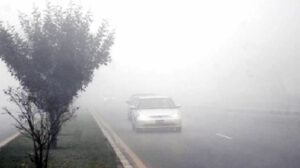
How To Withstand Harmattan Season In Nigeria
Seasons are periods of the year with distinct weather conditions and day lengths. West Africa and Nigeria, in particular, have two major seasons in a year – rainy and dry. Nigeria has a tropical climate with variable rainy and dry seasons, depending on location. It is hot and wet most of the year in the southeast. Every season in weather or life requires an adaptive strategy to cope with the excesses or lack in a particular condition. Surviving extreme weather conditions entails good knowledge of the hazards and benefits. Even though we experience Harmattan in Nigeria, many people do not anticipate the weather, prepare for it, or take the necessary precautions when it finally arrives.
Incidentally, many people do not take care until they find themselves in a disaster. Many Nigerians already have running and gnoses; some students experience nose bleeding at the slightest stretch. Red eyes started early in November, but most people are not reflective nor very concerned. Parents, on their part, have a massive responsibility to shelter and protect young ones, especially in harsh weather conditions, which is why we must observe seasons.
The Harmattan is a season in West Africa between the end of November and the middle of March. It is characterized by the dry and dusty northeasterly trade wind, which blows from the Sahara over West Africa into the Gulf of Guinea. It usually carries large amounts of dust, transporting hundreds of miles over the Atlantic Ocean. The dryness of this weather condition often uniquely affects each individual, especially those with an underlying health condition. We can compare Harmattan to winter in the West due to humidity and lesser density.
However, you can navigate this period comfortably and healthily with some preparation and knowledge. We can always take into account practical tips and tricks to help you withstand the Harmattan. During this period, illnesses like cold, catarrh, and cough are common due to the cold weather and the dusty nature of the atmosphere. Traveling long distances on a motorcycle (Okada) without a protective nose mask can infect your airways or cause upper respiratory tract infections. Therefore, there would be an increase in asthma, bronchitis, pneumonia, neuralgia, and conjunctivitis.
Expectantly, the Harmattan comes to northern Nigeria with dry stormy wind and a cold of less than 5°C. Most telecommunications giants in Nigeria offer poor services at this time due to atmospheric weather and climatic conditions. Ensure your car is in good condition, as the Harmattan can affect vehicle performance. Check the engine, tires, and lights regularly. Protecting our furniture and electronics with dust cover is advisable to prevent dust buildup.
Increasing water intake (at least 2-3 liters of water per day) is advised, such as wearing long sleeves and pants to shield the skin or even using scarves and hats to cover hair and face. We can wear protective eyewear to protect the eyes from dust and debris. We use mild soaps, moisturizing creams, oil, petroleum jelly, and even on our lips to combat dryness and prevent chapping. Rinse your face and nasal passages with lukewarm water regularly, especially after dust exposure. Moisturize your nasal passages with saline drops to prevent dryness and irritation. Temperatures may be warm but might decrease in the middle of the night, hence the need for sweaters. Asthmatic patients and those with allergies should take proper care and handling of the inhalers and prescribed medications.
Again, we must consume a balanced diet rich in vitamins and nutrients to boost our immune system and minerals to fight off infections and overall health during the harmattan season. Constantly monitor weather reports for updates on harmattan conditions. Consult your doctor for specific advice on managing pre-existing respiratory or skin conditions. Stay indoors when the Harmattan is severe to reduce exposure to dusty air. Ensure proper ventilation in your home while using air cleaners and humidifiers. Get adequate rest and sleep to help your body cope with the seasonal changes. Remember, preparation and awareness are crucial to enjoying this unique period.
Finally, we must avoid bush burning and be mindful of how we handle highly inflammable substances because everywhere is dry. Limit processed foods and sugary drinks, which can dehydrate and weaken your immune system. Drinking too much alcohol will make you feel warm even though you are losing heat. The magic wand to preventing adverse effects on your health and safety is to protect yourself, your home, and your environment. We can always enjoy the harmattan season, whether sunny, rainy, windy, stormy, or cloudy. The Harmattan season comes with manyf tropical fruits, which we would patiently partake of. As we think of celebrating Christmas in December, we equally plan how to withstand the Harmattan season.
Obiotika Wilfred Toochukwu
St. Patrick’s Catholic Church
Awgbu – Anambra State.
Photo Credit: punchng.com



